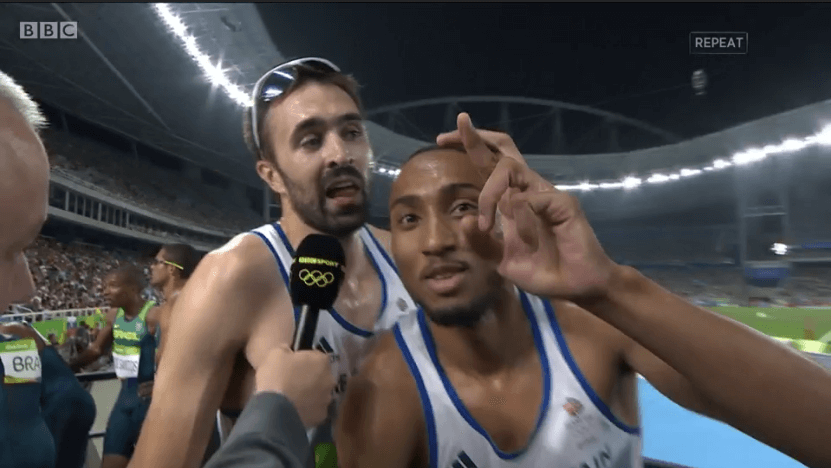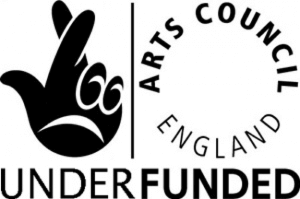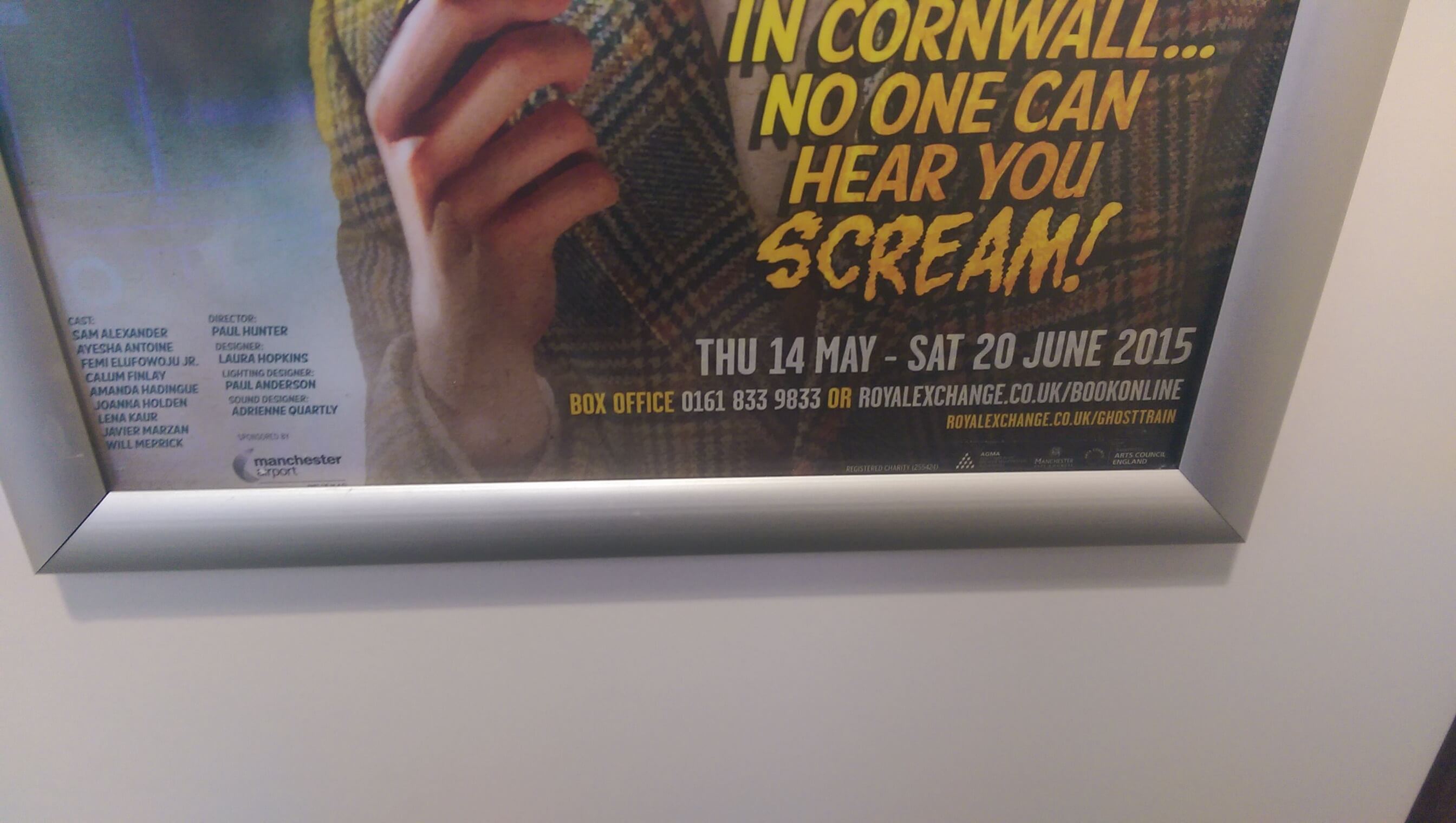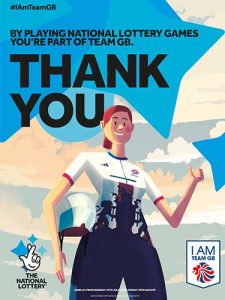Proudly Supported by the National Lottery

“I’d like to thank the National Lottery for their support”.
I’ve lost track of how many times I’ve heard this over the last two weeks. If, like me, you have spent most of the last two weeks glued to the Olympics I’m sure you’ve heard it, too.
This simple sentiment has been at the heart of almost every medal winner’s TV interview. Despite most interviews taking place within minutes of the athlete’s winning performance or medal ceremony, when they are in their most emotional state, the majority have remembered to thank the funder that contributed significantly to their success.
And it’s got me thinking – shouldn’t the arts and culture sector be doing more to celebrate the lottery and government support we get?
The mass display of love for the National Lottery is almost certainly not a coincidence. This is a strategic decision that has been drilled into them by Press Officers through multiple media briefings and the rationale for this is simple:
- Their success is overwhelmingly dependent on the support of government and lottery funds
- There are ever-increasing pressures on the funding available. Decisions on the next 5 years of funding are imminent, difficult decisions will have to be made and they need to protect themselves from cuts
- They rely on the general public to buy into the case for investing in them. Increased public support makes it harder to cut investment.
Sound familiar?

Yet, despite these similarities, and the comparable levels of lottery funding spent on arts and sport each year, the level of public acknowledgement is markedly different.
I’ve long felt that, for many organisations, Arts Council support is seen as a God-given right, a necessary evil, a slightly embarrassing inconvenience or all of the above. Organisations are quick to criticise but much slower to acknowledge the role of lottery and government funding in their successes.
A clear example of this came last week. On Wednesday 10 August the Arts Council turned 70. And while ACE has been marking the occasion with its #70things campaign, the rest of the sector has celebrated with deafening silence. A trawl through the websites, Facebook pages and twitter accounts of the ten biggest National Portfolio Organisations shows that, save for a handful of retweets for #70things activities, none of them felt this milestone was worth sharing with their audiences.
But what if things were different?
What if, as a sector, we had used the milestone as a focal point for a nationwide celebration of government and lottery investment in the arts and culture sector? Let’s face it, there are a large number of organisations that would never have existed, let alone continue to exist today, if not for Arts Council support. What if the impact of 70 years of subsidy had been co-ordinated and shared with 70 years of tax payers and Lottery players?
What if we had used the happy coincidence of the anniversary falling within the Olympics and joined up with the Lottery’s own publicity activity to celebrate the wider benefits of Lottery funding for Good Causes?
What if opening nights and awards acceptances speeches took the same approach as the Team GB athletes, thanking the funders at every opportunity? (I’ve sat through far too many speeches where the recipient has thanked every member of cast and crew but somehow managed to forget to thank the organisation that provided 40% of the funding).
What if organisations proudly took every opportunity to thank the public for their support, rather than seeing the ACE logo as a reporting requirement – yet another thing on the website, poster or programme to detract from the designer’s artistic vision? (Can you see the supporter credits on this poster?)
What if we were publicly proud of government and Lottery investment, rather than quietly hoping that people don’t notice.


Perhaps I’m being naïve but it strikes me that there are wide-ranging, deep-reaching benefits to doing so:
The first is that sharing our successes with the public will give them greater ownership of our organisations and our work. Behavioural Economics shows us how important ownership can be – as a species we are more likely to act to prevent loss than we are to achieve a gain. If the wider public feel our work belongs to them they will be much more likely to take action should anything threaten it. Bhavisha Kukadia described the Olympics as “the world’s biggest Case for Support”. Just imagine the outrage there would be this week if the government announced it was cutting funding for track cycling…
It could also lead to a greater understanding of how the arts are funded. The more we report on how we are using public funds, the more positive platforms we create to also show the role of earned income and philanthropy. And rather than make people less likely to donate, it could actually have the opposite effect – the Endowed Progress Effect suggests that people are more committed to achieving a target if they can see that progress has been made towards it. They are more committed still if they have contributed to that progress.
Finally, celebrating the successes made possible by Lottery and government subsidy could even lead to more money being available. As the Olympics has shown, there is a financial incentive for promoting the National Lottery to an excited and engaged audience. As a spokesperson for the National Lottery explains, “Team GB’s fantastic achievements in Rio have generated huge excitement among players and retailers here in the UK – and that’s great news for National Lottery sales and, most importantly, for all of the Good Causes that will benefit.”
Thank you to Camelot for their help with this blog post. As their spokesperson says:
“If you’ve already bought a National Lottery ticket, then in regards to all of the medals being won in Rio…you’ve made that happen. National Lottery players are contributing over £80 million per year to support over 1,300 athletes for sporting success in the Rio Olympics and Paralympics, and beyond – as well as several hundred million into grassroots sport – so all of our players should truly feel ‘I Am Team GB’ and can get involved in the UK’s biggest ever sports day taking place on 27 August. For more details, go to: http://www.iamteamgb.com“

